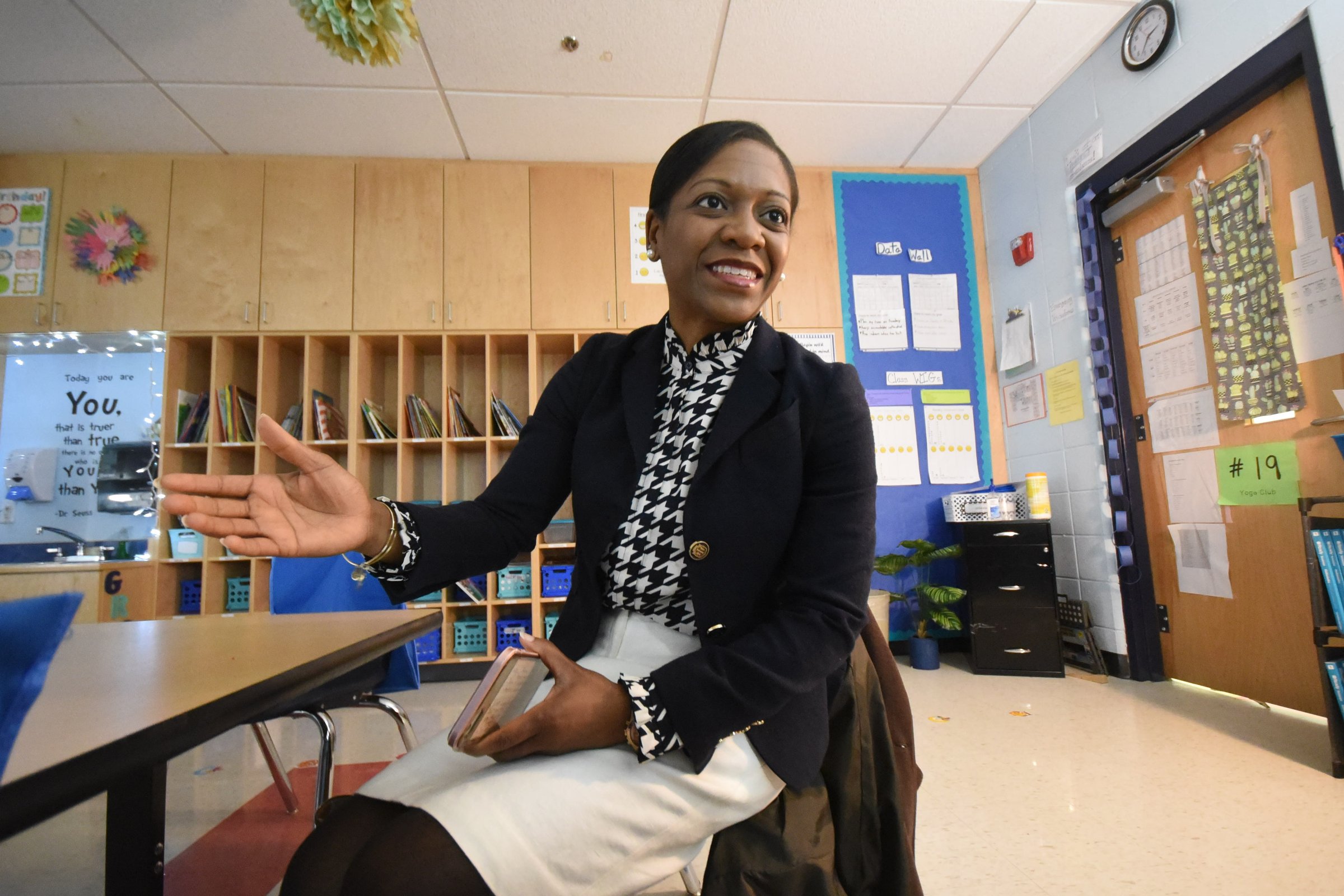"Can you show me how to take a belly breath?" says Heather Townley to the classroom of first-graders circled around her.
The students, some resting their hands on their bellies, take deep breaths and let the air pass slowly out of their mouths.
"When do we need to take a belly breath?" Townley asks.
Little hands dart up.
"Whenever we are mad, when we get angry and want to throw stuff," the children answer.
Townley is a school counselor at East Ridge Elementary.
When she isn't responding to crisis situations like cases of abuse or a death, meeting with students one-on-one to determine if they need further counseling, or helping teachers work through their students' challenges, Townley teaches classroom lessons on identifying and regulating emotions, how to handle conflict and how to identify safe or unsafe situations.
Twenty seven elementary schools in Hamilton County now each have a full-time school counselor after Superintendent Bryan Johnson added seven more to the 2018-19 budget. The ratio of counselors to students in the district's elementary schools, 1 to 612, is well above the 1 to 250 that the American School Counselor Association recommends.
Increasing funding for school counselors is one of several legislative priorities that the Hamilton County school board approved at its January meeting, ahead of the legislative - and lobbying - season.
"The Hamilton County Board of Education encourages an increased commitment to supporting the whole child," according to the document. "With increased social-emotional needs for students across the state, increased counselor support is key to ensuring the learning environment is such that students can be academically successful."
Tennessee's education funding mechanism, the Basic Education Program, funds school counselors at a rate of 1 to 500 for elementary school and 1 to 350 for secondary schools.
At East Ridge Elementary, Townley is the only full-time counselor for a school with about 1,100 students. A part-time counselor also comes to the school twice a week.
"Counselors wear many hats," Townley said. "I think that some people think of a guidance counselor when they think of school counselors. That we just sit in our room and wait for kids to come in. But we are very visible and we are out in the school. We are unique in that we work with every student in the building, and the same with every teacher."
The job can look different from school to school though, said Patricia Russell, the district's director of school counseling. At many elementary schools, counselors work with teachers to provide classroom lessons, attend to crisis situations and lead student groups.
They start exposing students to careers early and work with a school's social workers to address student and family needs.
At the secondary level, school counselors work alongside career advisers, truancy officers and social workers to address everything from social problems, substance abuse and other challenges a student may face outside of school to getting students thinking about careers and college.
For instance, in middle schools across the district this year, counselors are working with sixth grade students to create six-year plans to help them identify goals and steps to reach their goals, such as what courses to take or what tracks they might want to follow in high school, Russell said.
The district has more counselors at the secondary level because of the focus on career and college advising, the greater array of issues students face as they get older and the district's focus on workforce development. Now there is about 1 counselor for every 318 secondary students.
Russell said it's actually easy to summarize what school counselors do.
"Their basic priority is to make sure kids are having a good day and are safe," she said.
Several school board members have said they plan to increase the conversation about school counselors this spring, as both county and state lawmakers turn to budget talks.
They also will work with Knox County Schools, Metro Nashville Public Schools, Shelby County Schools and the lobbying firm that represents the group at the statehouse to call for increased funding for counselors.
"School counselors are essential, we need more funding for them," District 9 school board member Steve Highlander said.
Russell said the ideal would be for every school to have a full-time counselor. For now, the district's more realistic goal is to get closer to the 1 to 250 recommendation at the elementary level, and 1 to 350 for secondary schools, she said.
Contact staff writer Meghan Mangrum at mmangrum@timesfreepress.com or 423-757-6592. Follow her on Twitter @memangrum.

